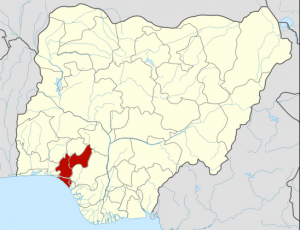Islamic centers and churches in Nigeria hold thousands of mental health patients in chains, rights group says – Tek Portal

The rights group said detention and violent treatment of inmates are rife in some state-run clinics, Islamic rehabilitation centers, traditional healing homes, and churches in the country.
Citing interviews with dozens of patients, families and staff at various Nigerian mental health facilities visited between 2018 to 2019, Human Rights Watch said patients, including children, were being forced to eat or drink herbs as part of their treatment in some traditional healing homes.
A 22-year-old woman at a Christian healing center in Abeokuta, a city in southwest Nigeria, told the rights group she had been held captive in a church for five months and denied food as part of a “spiritual cleanse” for her condition.
“I was tied with chains for three days straight so I could fast. For the three days I had no food or water. It wasn’t my choice, but the pastor said it was good for me. Sometimes if they say I should fast and I drink water or take food, they (the church staff) put me on a chain,” she said.
“The chaining is punishment. I have been put on chain so many times I can’t count,” she added.
People brought to these facilities by family members ended up being held in chains and detained for months in overcrowded and unhygienic conditions, the report says.
“People with mental health conditions should be supported and provided with effective services in their communities, not chained and abused,” said Emina Ćerimović, a senior disability rights researcher with Human Rights Watch.
Crackdown on abusive centers
Authorities in Nigeria have rescued hundreds of people held under degrading conditions in a crackdown on religious rehabilitation centers in recent months.
Police rescued more than 300 men and boys held in dehumanizing conditions from an Islamic school in the northern Nigerian city of Kaduna in September. Some of them told police they had been beaten, sexually abused and tortured by their teachers.
Police in Katsina also freed 67 held captive under “inhumane” conditions from an Islamic rehabilitation center in October. Rescued people told police they were beaten with chains and denied food for days by instructors at the rehabilitation home. They were brought to the center by their relatives in the hope of “reforming” them, according to the police.
Nigerian police also set free 259 people, including women and children, from an Islamic rehabilitation home in the southwestern city of Ibadan this month.
‘Torture chambers’
President Muhammadu Buhari has promised to look into the activities of some Islamic schools, which have long faced accusations of abuse.
Following the recent raids, Buhari said his government will no longer tolerate the existence of “torture chambers” claiming to be rehabilitation centers. He also called on law enforcement to keep exposing illegal activities.
“No responsible democratic government would tolerate the existence of the torture chambers and physical abuses of inmates in the name of rehabilitation of the victims,” Buhari said last month.
Human Rights Watch said a shortage of mental health facilities and personnel in Nigeria were the underlying reasons why many of these centers exist.
“But it’s not enough to raid these centers and shut them down. People rescued from these desperate conditions and other Nigerians experiencing psychological distress should have access to proper psychosocial support and mental health services,” Ćerimović said.
The rights group also called for public education to improve citizens’ understanding of mental health conditions.
http://rss.cnn.com/~r/rss/edition_africa/~3/1_yqHszU21w/index.html




